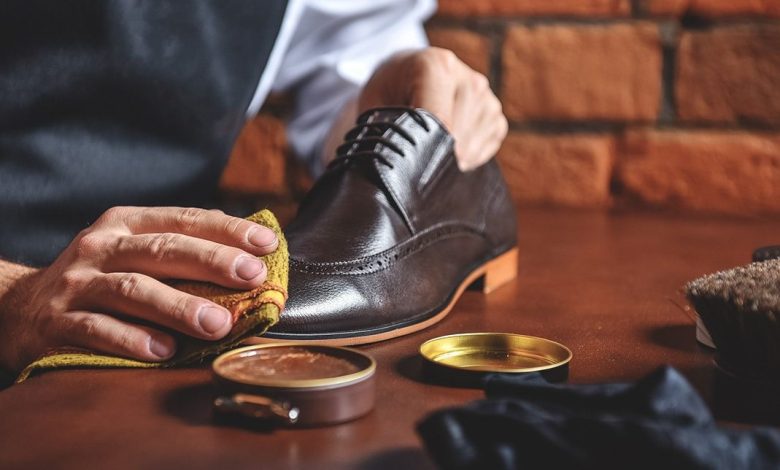
A day in the life of a Kampala cobbler
Richard Nuwamanya, 29, has been working as a cobbler for seven years in Kyaliwajjala trading centre. He mends worn out shoes, polishes and cleans shoes but recently bought a machine that makes shoe soles.
He told Youth Blitz that while work can be challenging, he has reaped some fruits. Here is how his typical day is like.
Nuwamanya says he was introduced to this business in 2016 by a village mate who had moved to Kampala earlier looking for greener pastures.
“I have learned everything on the job. Everything I know I was taught by a friend who I lived with when I had just come to the city,” he says.
After working with the friend for six months, he says he left and set up his own separate business.
Nuwamanya says he wakes up each day at 6.00 am and makes preparations for the day. Since he stays at least one kilometer from his workplace, he says it takes him less than 20 minutes to move from home to work.
“Usually when I arrive at work, I look at the pending work because some of these shoe repairs take time,” he says.
So when he reaches work at 7.00 am, he starts by trying to clear the backlog.
He says takes breakfast at about 8.00 am which comprises a cup of tea with roasted cassava or a chapatti.
Between 9.00 am and 12 pm, he says he experiences a flood of customers especially women who want their shoes repaired.
“I normally work on women shoes because they seem to experience more issues with their shoes. I think it is about the quality of the shoes,” he says.
Depending on the complexity of the task he charges between Shs 1,000 and Shs 20,000.
“There are people who come with four pairs of shoes and they want to have the soles replaced. I make more money from these people,” Nuwamanya says.
He takes a 30 minute break to have lunch at about 1.00. After lunch he resumes work until about 7.00 pm when he retires for the day.
“My work can be hectic and tedious and since I work alone, I need to have enough rest,” he says.
He normally goes home at 8.00 PM, takes a shower and sleeps. He says he eats dinner at a local restaurant because he is not yet married.
“I live alone so I have no one to cook for me. I just go home to shower and sleep,” Nuwamanya says.
On average, Nuwamanya says he earns at least Shs 30,000 a day. Some days, he says, he makes more.
From his modest business, Nuwamanya has managed to educate some of his siblings in the village. He says he also bought a small piece of land in the village last year.
“I have made some progress although things are still tough but slowly by slowly, I will reach my destination,” he says.
His plan is to acquire skills in shoe-making and has already embarked on this journey. He says in five years he wants to be in position to make his own brand of shoes.
Challenges
He says the biggest challenge is the rising cost of some of the inputs he needs to run his business.
Every time costs of things like threads and for dyes keeps going up yet you can instantly adjust your prices because people will run away.
Another challenge, he says, are local authorities who keep asking for all types of levies from them. He says the levies for some businesses like trading licenses need to be scrapped.
“These are frustrating young people from venturing into formal businesses,” he says.
Advice to the youth
Young people need to embrace any kind of work as long as it does not break the law. That is how they will advance in life.
“The problem with some of the youth today is they despise some jobs yet they need money. Some even resort to petty crime to make ends meet. But if they can learn a skill and then work, they will be better,” he says.
He advises government to set up skilling centres for the youth in various areas of the country saying this will help fight unemployment.



